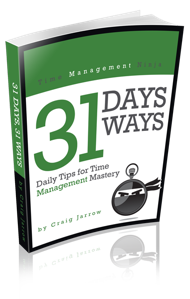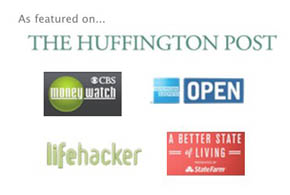 Do you open emails and then leave them in your inbox?
Do you open emails and then leave them in your inbox?
Would you do this with your post office mail? (Your mail carrier would get angry pretty quickly…)
This action makes no sense. It wastes time and only serves to create more work later.
Don’t bother opening your emails unless you are prepared to actually do something about them.
You Shouldn’t Read Your Email
Email. The mere mention of it makes most people shudder.
Thoughts immediately go to wasted time, overflowing inboxes, and unanswered messages.
Email continues to be one of the biggest time wasters at most workplaces.
It is inefficient. So much so, that it is estimated that employees spend up to a third of their time processing email.
However, much of email’s impact on your day is self-inflicted.
Why? Because you read emails, but fail to do anything with them.
When you open an email, you should be ready to act upon it. Do something, anything, with it. Do it, process it, delete it, etc.
Yet, most people will open emails and then simply put them back in their inbox.
(And you wonder how you ended up with 20K+ emails in there…)
“Never read an email and then leave it in your inbox.”
This means you shouldn’t “casually” check your email whether at your desk or on your mobile. I would argue that most people don’t need email on their mobile devices. Yet, many people check their email over 150 times a day!
Only go into your inbox when you are ready to do email. Otherwise, don’t bother checking it. You are wasting time, effort, and even adding stress to your mind with information you don’t need yet.
You should never read your email. Only open it when you are prepared to act on it.
Here are some email processing tips to ensure you don’t put email back in your inbox:
- Do It – When you open an email, act on it. (If you don’t have time, then you shouldn’t have been in your email in the first place.) Perform the action. Respond if an answer is needed. Forward to the responsible party or delegate it immediately. Whatever you do, don’t let it sit in your inbox.
- Delete It – Most emails are worthless. Yes, even the ones that aren’t spam. Do you really need to keep a 37-page long thank you email chain that people kept congratulating themselves on? Delete nonsense and meaningless emails. You won’t need them again.
- File It – Archiving email gets it out of your inbox and saves it for future reference. Be ruthless about archiving messages to keep the clutter to a minimum in your inbox. You don’t want important messages to be lost amongst a sea of low priority emails.
- Add It to your Todo list – What about emails that aren’t ready to be “done” now? Add them to your todo list, as that is where “tasks” belong. Then, file that email. You can always come back to it for more information later.
- Filter It – For the more advanced, filter your email to prevent repeat spam and solicitations from reaching your inbox in the first place. I have used Sanebox for many years and it only allows the most important emails into my inbox.
Act on Your Email
Don’t be a casual reader of email.
Stay out of your inbox, unless you are prepared to actually act upon your email. You will reduce stress and wasted time by only checking your email when it makes sense to do your email.
If you are disciplined about it, you might just find that your inbox actually does reach an empty state.
Question: Are you guilty of reading emails only to put them back in your inbox? You can leave a comment by clicking here.
 I am the author of Time Management Ninja and help individuals and companies reclaim their time to be more productive. As well, I am the author of the book
I am the author of Time Management Ninja and help individuals and companies reclaim their time to be more productive. As well, I am the author of the book 

Guilty as charged.
I tend to check my email first thing in the morning and throughout the day. In my defense, I’ve been ruthless with unsubscribing and delegating emails, so there are usually only three or four that actually make their way to my inbox. Still, I could save a lot of time checking only when I have the opportunity.
One trick I used a few month ago was only giving myself two minutes a day to reply to email. All of it, all at once. This was back when I had a job where I got 20-50 emails a day. It was exhilarating and productive all at the same time. I loved it!
Okay, off to hide my email app from my iPhone. 🙂
I recently turned off all notifications (except texts and calls) on my phone and tablet. I need to do the same for my computer, too, but haven’t actually brought myself that far yet. I feel like it’s just about time to have my assistant start pre-screening my e-mails for me, but I’m worried that it would be too hard to explain what I’d like to have done with it. Do you have any advice for delegating e-mail management?
My company lately introduced a concept called – work in a box.
A rule of this concept to not read your mail between 9:00am and 17:00pm. You can read your mail after 17:00pm.
In order to manage the expectations of everyone that sends us a mail, we had to put on an auto reply, stating that we read our mails rarely and thus, everyone should expect delay in replies.
To be honest, it felt incredibly light to work in such a mode.
Yes, I agree! I am 82, how do I get 200 emails each and every day. I am totally to blame, I subscribed to political, craft, religious emails. Now I am going to take your advice, I waste 2 hrs a day trying to control email. Bye bye email, thanks for the encouragement